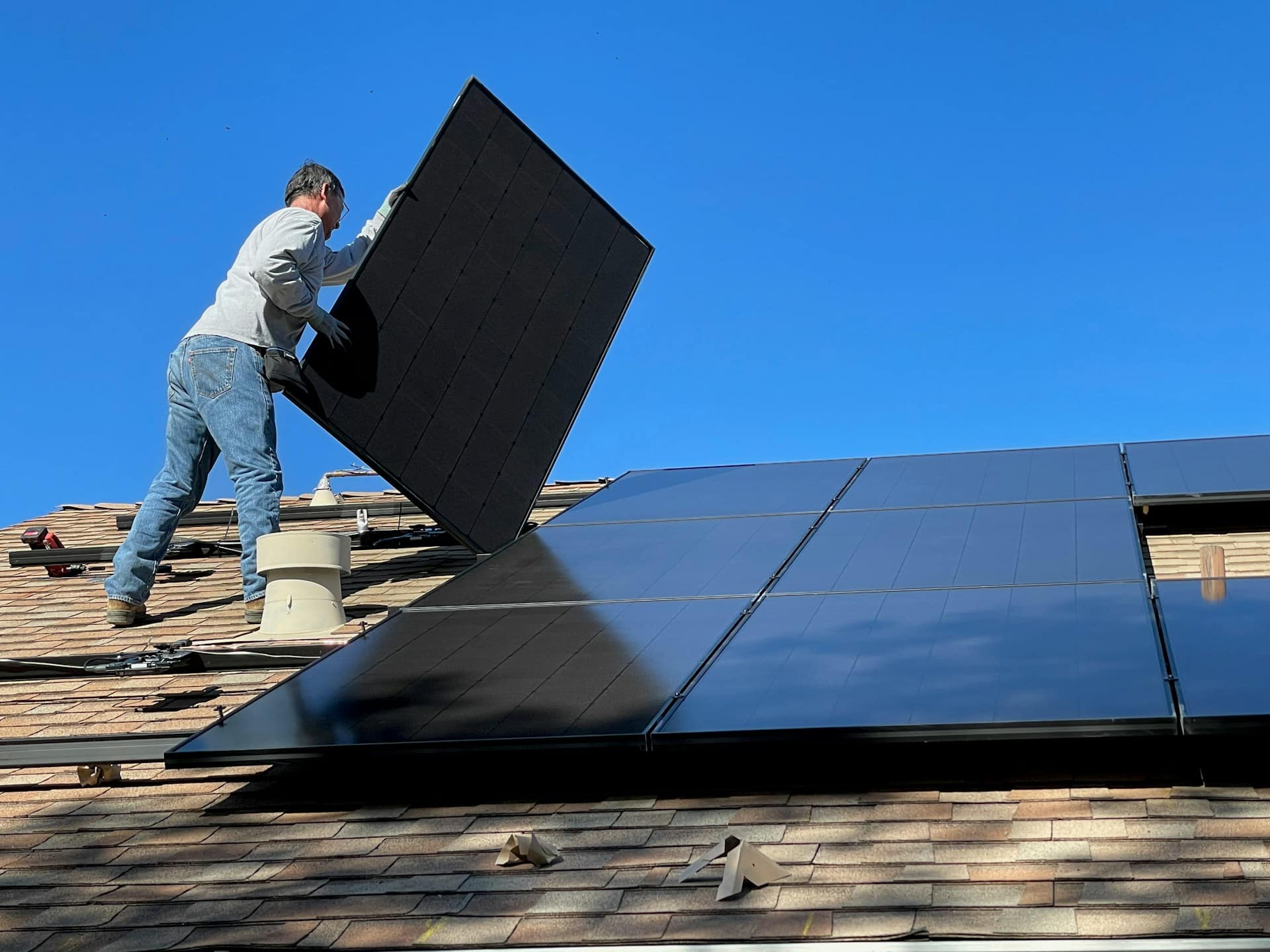This article may contain affiliate links. We may receive a commission for purchases made through these links. Privacy Policy.
People say that money can’t buy happiness all the time, but how true is it?
It’s likely that none of us would turn down a little extra cash. But while a bit more money in our wallets can buy us some things that’ll make us temporarily happy, like a new car or a bigger house, or even something smaller like the latest gadget or a quick weekend vacation, there are just some things that money can’t buy.
If you’re looking to focus on the important things in life, maybe take a step back and reflect on what truly makes life worth living. If you’re trying to bring more value to your life that doesn’t correlate with material things or the amount in your bank account, check out these 10 things money can’t buy that make you happy.
10 Ways To Appreciate Life and Be Happy
You may find that these commodities are exactly what you need to live your best life.
1. Time

Time is one of the most valuable things in life — something many people don’t realize until it’s too late. After all, what is everyone really trying to get with their efforts to improve their health or their struggles to work their way up the ladder at work? Time.
Whether it’s more time on this planet through a healthier body or more free time through a better job that’s less demanding, everyone wants a little more time at the end of the day.
But more money doesn’t equal more time. In many instances, more money (i.e., more work) equals less time. Less time to spend with your family, less time to spend on your self-care, less time to spend doing things you love.
One free way to add more time to your life? Start saying “no” to things that you really don’t want to do. It’s easy!
When your boss asks you to pick up more hours over the weekend, just say “no.” When a work acquaintance asks if they can “pick your brain” over the weekend, just say “no.” When another parent asks you to volunteer at an event, just say “no.”
It doesn’t make you selfish. It simply means you’re valuing your personal time and choosing to spend it the way you want.
2. Relationships

Sure, you could throw your money at the object of your affections, and it might work out pretty well for you. After all, who doesn’t appreciate a thoughtful gift or a surprise bouquet of roses? But money alone can’t build a relationship.
What does build a relationship? Time. Effort. Thoughtfulness. Love.
So, maybe the next time you need to choose between doing a little extra work in the evening to impress your boss or having dinner at the table with the family, opt for the latter.
Related: Three Ways For You To Practice Mindfulness [And Find Peace]
3. Peace of Mind

Unfortunately, while money can help you feel more secure and help purchase things that can alleviate some of your worries and anxieties (health care, education, food, etc.), ultimately, no amount of money can entirely relieve your internal struggles.
If you’re dealing with stress, anxiety, depression or other mental health issues, while money can sometimes take care of external factors, the money won’t be able to address the root, internal issues. The only way you can do that is with some serious contemplation and self-awareness.
4. Wisdom, Character and Respect

From lottery winners to celebrities, you probably know many people who have plenty of money and very little smarts. That’s because, while some millionaires and billionaires are, in fact, pretty wise, there are plenty of others who aren’t.
Money can’t buy wisdom. Some people are wise, and they use that wisdom to make money, but no one really becomes wise as a result of having a lot of money.
And just like you probably know some rich individuals lacking in wisdom, you probably also know quite a few rich individuals who are just plain bad people. No amount of money makes you a good person.
And what do you often get as a result of being a good, wise person? According to Maslow’s Hierarchy of Needs (more on that below), the respect of those around you is right up there with love in how it impacts your happiness and satisfaction in life.
5. Health

Whether physical or mental, we can all probably agree that health is important and dramatically impacts your quality of life. And yes, money can buy health care and afford you better treatments and a better quality of life, but simply having money doesn’t erase conditions such as depression, cancer, obesity or anxiety.
Plenty of wealthy people die every year from the same diseases and illnesses that impact even the poorest among us. Instead of money, many times, your health all comes down to making the right choices.
Related: Gut Health 101 [And How It Can Change Your Day-To-Day Life]
6. Purpose

If there’s one thing in life that can make a person unhappy, it’s a lack of purpose. Too often, people tie purpose to their jobs or the amount of money they make, but when you really start to evaluate your purpose in life, you’ll see that it’s not actually about those things at all.
When you break down your purpose into its basic components, it’s usually much simpler and simultaneously much grander than a mere job.
Maybe, on the surface level, you think your purpose is to care for other people’s children so they can go to work every day. On a deeper level, your purpose is providing a safe, nurturing space for children in your community to feel loved and where they can grow, learn and thrive — a purpose that feels far more important and vital than simply watching some kids at a daycare facility.
Maybe your purpose is to care for your family and show your love for them on a daily basis through your decisions. Maybe your purpose is creating art or writings that make people think about important issues and reevaluate their ideas and lives.
When you really start to look at your day-to-day actions, you’ll find that your purpose is so much more than making money or going to an hourly job. Hopefully, it’s something that makes you happy, regardless of whether or not it even makes money at all.
Related: 10 Things To Do When You Feel Like Giving Up [You Got This]
7. A Healthy Home Life

Creating a healthy home life takes a lot of work, but one thing it doesn’t take? Money.
Creating a healthy home — one where your family members feel happy, loved, valued, appreciated, and safe — takes quality time, care, thoughtfulness and a lot of work.
It takes working through your issues with your spouse or partner. It takes learning how to be a better parent. It takes establishing and sticking to habits that better everyone in the home, whether that’s just telling each other about your days at the dinner table each night or setting a good behavior precedent for your children through your daily actions.
8. Community

Humans are communal animals. For the most part, we like working together, living together, celebrating together, etc. Even if we don’t necessarily like many of the people around us, most of us are usually able to cobble together some sort of “tribe,” whether that’s a group of like-minded people on the internet or a few friends that we meet at some sort of hobby or special interest group in-person or just the coworkers that we love to complain to in the break room.
And while money certainly attracts people, it can’t build a real community. That only stems from shared experiences, time spent together and showing your support and gratitude for those around you, no matter what kind of community you find yourself in.
9. Gratitude

Studies have shown that people who practice gratitude are happier, but you can’t exactly buy gratitude at the store. Instead, becoming a naturally grateful person takes practice.
One easy way to start building a mindset of gratitude? Each day, list out some things that you’re thankful for before you go to sleep. Even if you can’t think of one good thing that happened that day, you can probably think of a few things you’re still thankful for in the broad scheme of things, whether that be your family, the roof over your head or your health.
10. Creativity

Those who spend a little time being creative each day are shown to be happier overall. Don’t make the excuse that you aren’t creative, though, or that creativity is something you’re born with rather than something you can cultivate.
Creativity comes to those who try. So, pick up a pencil and start doodling. Finger-paint with the kids. Write a short story. The more you channel your creativity, the more creative you’ll be. It’s that simple.
The Science Behind Why Money Can’t Buy You Happiness
Even with all of the above, are you still feeling like you could definitely reach your peak happiness if you had a little more cash? Well, don’t take our words for it. Science also says money can’t really buy you happiness for a few key reasons.
The Hedonic Treadmill
First up, the hedonic treadmill. This concept basically states that no matter what happens in your life — increases or decreases in your salary, the death of a loved one, the loss of a job, etc. — you generally tend to revert back to one consistent happiness level. Everyone has their own happiness baseline; however happy they are in a “normal” situation.
So, no matter how good a situation or how bad a situation might be, those extreme feelings will fade, and you’ll always go back to that baseline — regardless of how much money you make over your lifetime.
Maslow’s Hierarchy of Needs
Then, there’s Maslow’s Hierarchy of Needs. This concept is discussed in many college “Intro to Psychology” classes, so you may already be familiar with it. Basically, it ranks basic human “needs.” The more of your needs that are fulfilled, the happier you are.
But according to the hierarchy, money, a.k.a resources and property, are pretty low on the pyramid. These “safety needs” are only second to physiological needs like clothing, food and shelter, in terms of how happy they make you. Yeah, they’re necessary, but there are other needs to be met in order to achieve peak happiness.
The other needs that can make you happier through their fulfillment include:
- The need for love and belonging.
- A healthy sense of self-esteem.
- The need for self-actualization.
Here’s What Money Can Buy

But here’s the disclaimer. While money ultimately can’t make you happy and won’t turn a miserable person into a jolly go-getter, it can contribute to things that increase your sense of well-being while covering your basic needs.
A study found that individuals with the highest emotional well-being generally made between $60,000 and $75,000 per year, and individuals with the highest overall life satisfaction made approximately $95,000 per year.
However, the study also found that those at a higher income level generally had less life satisfaction and emotional well-being, despite all that disposable income, proving that more money can’t make you happy. Instead, it’s mostly just important to have enough money for those things that directly impact your happiness that money can buy. Things like a stable housing situation, plenty of food, health care, child care, etc.
To a point, money can buy physical and financial security; money can buy control over your own life and money can buy freedom. So, for that reason, it’s important to not look at the list of all the important, vital things that money can’t buy and simply decide you won’t ever worry about money again.
Instead, all of the above should be a reason to develop a healthy relationship with your personal finances so that you make enough to cover your basic needs and provide you with security, control and freedom, but in a manner that still allows you to focus on what’s truly important in life — all of those things that money can’t buy.
You might also be interested in: How To Set A Good Example For Your Kids And Make The World A Better Place
10 Things Money Can’t Buy That Will Make You Happy:
- Time
- Relationships
- Peace of Mind
- Wisdom, Character and Respect
- Health
- Purpose
- A Healthy Home Life
- Community
- Gratitude
- Creativity
Holly Riddle
view postHolly Riddle
Holly Riddle is a travel, food and lifestyle writer, and a full-time freelance content creator after several years on editorial staffs for a multitude of publications ranging in topic and audience demographic. She currently acts as the editor at large for Global Traveler magazine and is a regular contributor at Trazee Travel, WhereverFamily, TravelMag, CruiseHive and more. Ghostwritten work for travel clients has appeared on Forbes, Bloomberg, Inc. and other top publications. She also manages blogs for tour providers, hotels and tourism boards.
view post






